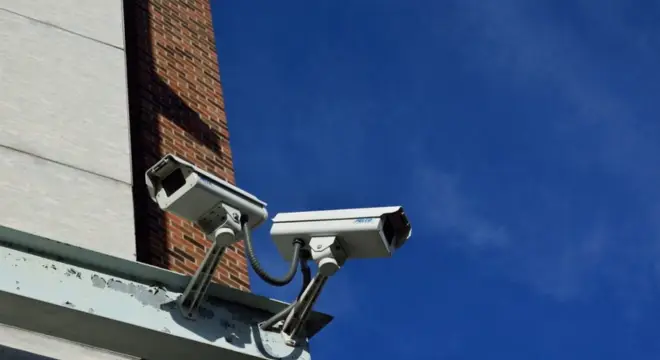Man Dies After Breaking Into Northern Minnesota Home
I’ve seen enough crime reports to know that home invasions rarely end well—but what happened on the Red Lake Indian Reservation this week hits harder than most. A man reportedly kicked in the door of a home in Redby, and within moments, he was shot and killed by the homeowner.
Police say the homeowner fired after the intruder forced his way inside. Neighbors and bystanders tried giving CPR, but by the time Red Lake officers and EMS arrived, it was too late. The man died at the scene.
Now, the FBI and Minnesota Bureau of Criminal Apprehension are investigating—something that doesn’t happen in every case, which tells you how seriously this is being treated.
This isn’t just about one incident. It raises bigger questions: What are your rights when someone breaks into your home? What does the law say—especially if you live in a tribal community like Red Lake? And how prepared are we, really, for something like this?
Let’s break it all down.
Exact Incident Timeline
Let me walk you through exactly what happened—because when it comes to home invasions, every second matters.
On Wednesday, a man allegedly kicked in the front door of a house in Redby, which is located within the Red Lake Indian Reservation in northern Minnesota. The homeowner, reportedly inside at the time, responded immediately—shooting the intruder shortly after he breached the entrance.
After the shooting, multiple people nearby rushed in to perform CPR on the man, hoping to save him. But by the time Red Lake officers arrived and EMS was called, the man was already pronounced dead at the scene.
Here’s the thing—you can check this confirmed timeline from KFGO’s report, which quotes local authorities directly. It’s not speculation; it’s fact.
Who’s Involved & Jurisdiction
Now if you’re like me, you probably want to know: Who was involved? And who’s in charge of figuring out what really happened?
Let’s break it down.
- The homeowner is the one who pulled the trigger—reportedly in response to a forced entry.
- The man who died hasn’t been named yet publicly.
- What’s different here is who’s leading the investigation: not just local police, but also the FBI and the Minnesota Bureau of Criminal Apprehension (BCA).
You might be wondering, “Why the FBI?”
That’s because crimes on Native American reservations often fall under federal jurisdiction, especially when it comes to serious incidents like shootings or deaths. So even if this happened on tribal land, the law says it’s a federal-level issue too.
That dual involvement makes the investigation broader—and yes, more complicated.
Just recently, authorities launched an ongoing investigation into a home invasion suspect in Peoria, showing that fast and coordinated law enforcement response is crucial.
Minnesota / Tribal Legal Context

Here’s where things get legally interesting—and if you own a home, this is the part you can’t ignore.
Minnesota has what’s called a Castle Doctrine, which basically says:
If someone breaks into your home, you have the right to defend yourself—even with deadly force—without first trying to run away.
So, technically, if you’re in your house and someone forces their way in, the law tends to side with the homeowner.
But—there’s a twist.
This shooting didn’t happen just anywhere. It happened on the Red Lake Indian Reservation, which operates under tribal sovereignty. That means tribal law, state law, and federal law all come into play—and it’s not always clear which one takes precedence right away.
If you’re wondering whether the shooter will face charges, it depends on:
- Was the intruder armed?
- Was the homeowner in immediate danger?
- Was the shooting proportionate?
In Minnesota, deadly force can be legal—but it must meet very specific conditions. On tribal land, it gets more nuanced.
A recent case involving an Iowa resident arrested for attacking a man after breaking into his home shows how break-ins can escalate rapidly, and why legal self-defense rights must be clearly understood.
Tribal Jurisdiction vs State/Federal Authority
If you’re confused about who’s really in charge when a crime happens on a reservation—you’re not alone. Even I had to dig deep to understand how these layers of law work.
Here’s the deal:
The Red Lake Indian Reservation is one of the few in the U.S. that operates as a “closed reservation”, meaning they maintain full tribal sovereignty. They aren’t under Public Law 280, so Minnesota state authorities don’t have full jurisdiction there.
But when a serious crime like homicide happens—especially involving a firearm—the lines blur.
That’s why you’ll often see the FBI step in. Under the Major Crimes Act, the federal government has authority over certain felonies on tribal land—including manslaughter and murder.
So in this Redby case, here’s how it stacks up:
- Local tribal police (Red Lake DPS) are first responders.
- Federal agencies like the FBI and Minnesota BCA assist with investigation and prosecution.
- Tribal court may handle lesser charges or civil issues, but federal court decides the big stuff.
Bottom line? Even if the homeowner acted in self-defense, multiple legal systems will weigh in before there’s a final judgment.
This kind of situation sparks strong opinions—what would you do if someone kicked in your door? Share your take in the comments below. Your voice might help others think through their own plan.
FBI & BCA Investigation Explained
Now I know what you might be thinking:
“Why is the FBI involved if this was just a break-in gone wrong?”
Well, as mentioned above, any violent crime on tribal land—especially a fatal shooting—automatically flags federal jurisdiction under the Major Crimes Act.
Here’s what these agencies typically do:
- The FBI gathers forensic evidence, conducts interviews, and leads the federal investigation.
- The Minnesota BCA (Bureau of Criminal Apprehension) supports with scene reconstruction, firearm analysis, and lab testing.
- Both agencies coordinate with tribal police and U.S. Attorney’s Office to decide if charges are necessary—or if it’s a justified shooting under the Castle Doctrine.
So no, the FBI’s involvement doesn’t automatically mean the homeowner did something wrong.
But it does mean the investigation will be thorough, layered, and slow.
And for homeowners like you and me? That’s actually a good thing. Because it ensures a fair process, not just snap judgments.
In another tragic case, a Florida man was sentenced to death for a deadly 2019 home invasion, highlighting how quickly a home intrusion can turn fatal.
Prevention & Homeowner Safety Tips

Let’s be honest—what happened in Redby is every homeowner’s worst nightmare. You’re sitting at home, and suddenly someone kicks in your door. What do you do?
Instead of living in fear, you and I can take some practical steps today that reduce the chances of this happening—or at least increase your ability to respond.
Here’s a checklist you should seriously consider:
- Reinforce Entry Points: Start with the basics. Install steel-core doors, heavy-duty deadbolt locks, and strike plates with long screws. A kicked-in door is often a weak door.
- Install Motion-Activated Lights: Darkness is an intruder’s best friend. Floodlights that switch on with movement can spook someone off your property before they reach your door.
- Invest in a Camera System: Even a basic setup that sends motion alerts to your phone can give you extra reaction time—and provide crucial footage if something happens.
- Use Loud Alarms or Sirens: Sometimes just making noise can change everything. Even a battery-powered siren or a barking-dog simulator can scare off opportunists.
- Know Your Neighbors: This one’s underrated. Build a relationship with at least one neighbor who can keep an eye out and call for help if needed.
- Practice a Family Safety Plan: Have a “what if” talk with your household. Where do you go if someone breaks in? Who grabs the phone? Which door leads out? That kind of clarity matters under pressure.
Here’s the bottom line—you may never need to fire a weapon. And I hope you never have to.
But being prepared? That’s always in your control.
We’ve also seen discussions around this case on WhatsApp where people are sharing security hacks and real-time neighborhood alerts—it’s eye-opening how many are preparing smarter now.
What This Means for Minnesota Homeowners?
So where does that leave us?
If someone breaks into your home tonight, and you respond with force—what happens next?
Here’s what we’ve learned:
- Minnesota’s Castle Doctrine does give you the right to defend your home.
- On tribal land, that right still exists—but you’ll also face federal-level scrutiny.
- Preventive measures aren’t just smart—they’re necessary.
- And finally, your legal fate might rest not just on what you did—but how clearly you can show it was justified.
For me, this incident is more than a headline—it’s a wake-up call.
And if you’re a homeowner, parent, or even just someone who values safety—you should see it the same way.
Final Thoughts
This Redby home invasion isn’t just another news story—it’s a reminder that self-defense, law, and safety are deeply personal issues. As a homeowner, you deserve to know where you stand legally and how to prepare practically.
Whether you live on tribal land or in the suburbs, one truth stays the same: when seconds count, preparation is everything.
Want to explore more real-life home invasion cases and how they were handled? Head over to our Home Security section for insights, case breakdowns, and expert prevention tips.
Disclaimer: This article is for informational purposes only and does not constitute legal advice. For questions about your rights or local laws, consult a licensed attorney. Legal circumstances may vary depending on jurisdiction and case specifics.


